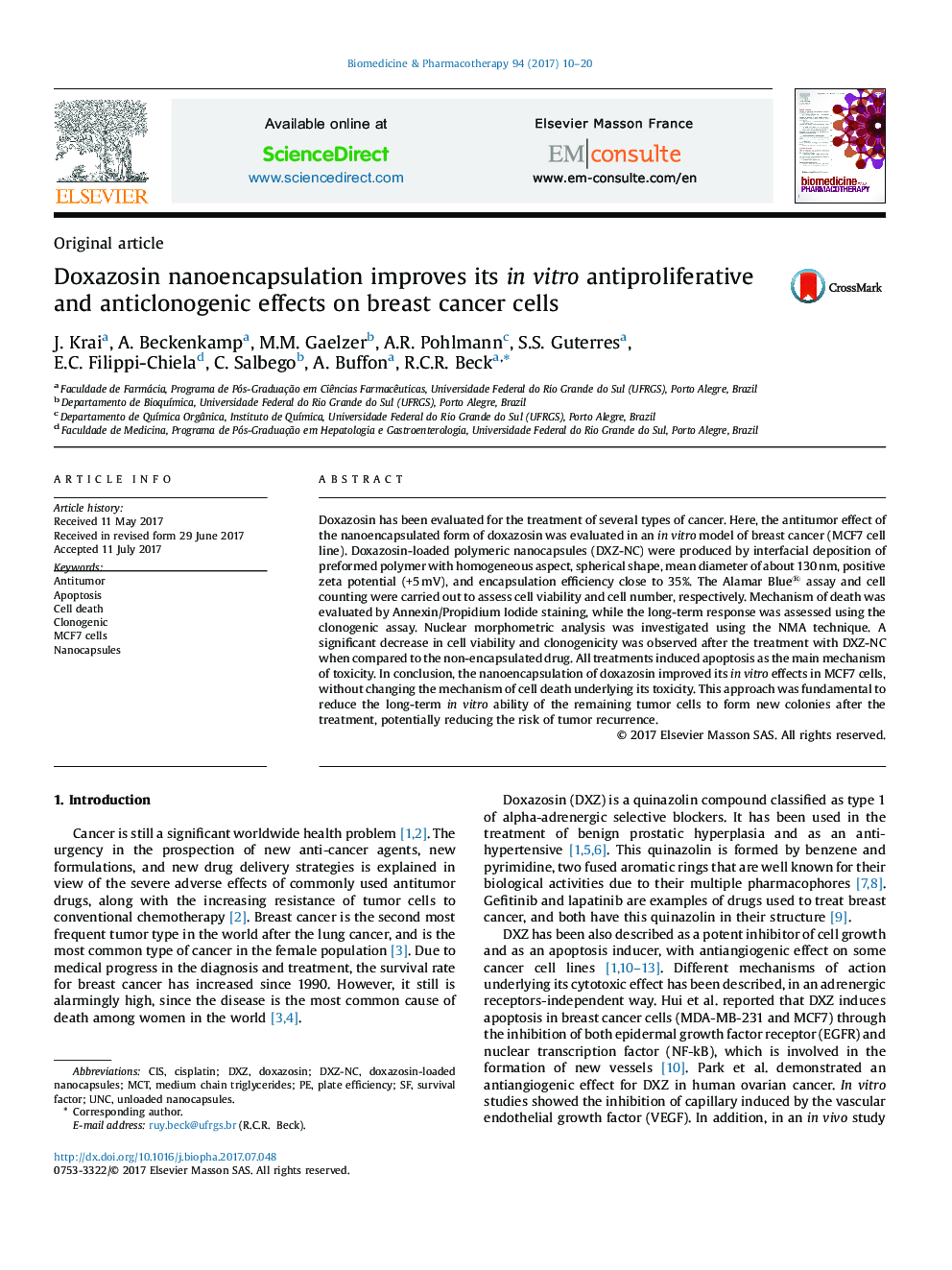| Article ID | Journal | Published Year | Pages | File Type |
|---|---|---|---|---|
| 5552812 | Biomedicine & Pharmacotherapy | 2017 | 11 Pages |
â¢Doxazosin-loaded nanocapsules were formulated with monomodal particle size.â¢Doxazosin release was not affected by its nanoencapsulation.â¢Nanoencapsulation improves doxazosin antiproliferative effects on MCF-7 cells.â¢MCF-7 cell colony forming was reduced by the nanoencapsulated doxazosin.
Doxazosin has been evaluated for the treatment of several types of cancer. Here, the antitumor effect of the nanoencapsulated form of doxazosin was evaluated in an in vitro model of breast cancer (MCF7 cell line). Doxazosin-loaded polymeric nanocapsules (DXZ-NC) were produced by interfacial deposition of preformed polymer with homogeneous aspect, spherical shape, mean diameter of about 130Â nm, positive zeta potential (+5Â mV), and encapsulation efficiency close to 35%. The Alamar Blue® assay and cell counting were carried out to assess cell viability and cell number, respectively. Mechanism of death was evaluated by Annexin/Propidium Iodide staining, while the long-term response was assessed using the clonogenic assay. Nuclear morphometric analysis was investigated using the NMA technique. A significant decrease in cell viability and clonogenicity was observed after the treatment with DXZ-NC when compared to the non-encapsulated drug. All treatments induced apoptosis as the main mechanism of toxicity. In conclusion, the nanoencapsulation of doxazosin improved its in vitro effects in MCF7 cells, without changing the mechanism of cell death underlying its toxicity. This approach was fundamental to reduce the long-term in vitro ability of the remaining tumor cells to form new colonies after the treatment, potentially reducing the risk of tumor recurrence.
Graphical abstractDownload high-res image (145KB)Download full-size image
